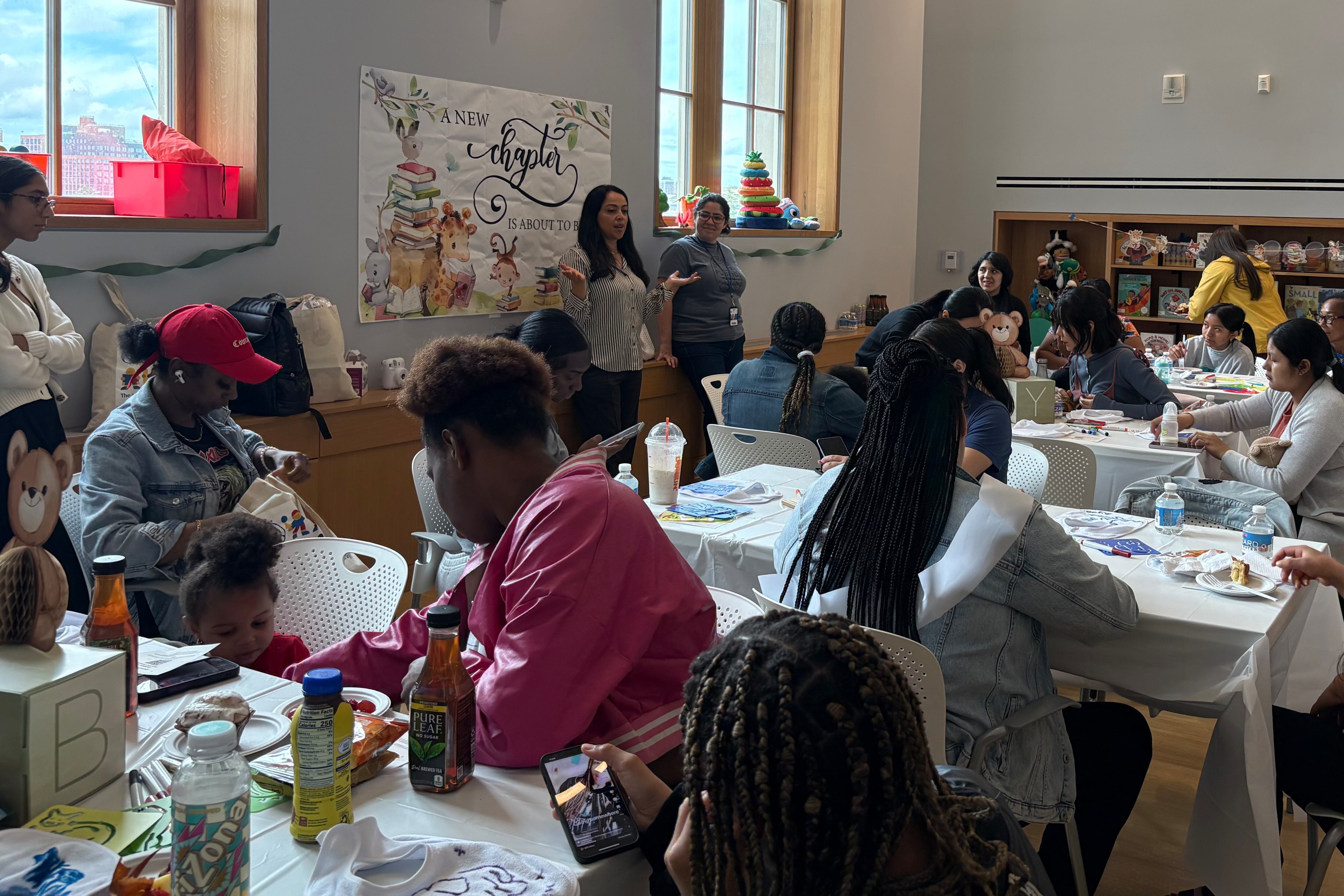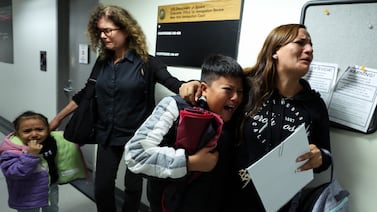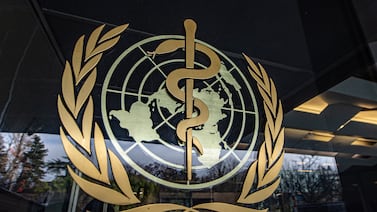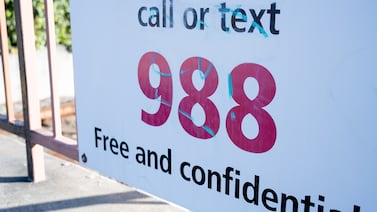Public health, explained: Sign up to receive Healthbeat’s free New York City newsletter here.
A nonprofit that works to help women survive childbirth in Guatemala, Kenya, and the Dominican Republic is expanding work in its only location in a developed country: New York City.
Saving Mothers, founded by New York University gynecologist and professor Taraneh Shirazian, is among several initiatives working to ease a maternal mortality crisis in the city, where deaths per 100,000 live births reached 19 last year.
Women in underserved areas of New York City are dying under many of the same conditions seen in less-developed countries - high blood pressure, infection and severe bleeding due to limited access to health care, poverty, social inequities, fear of medical devices, and mistrust of hospital staff, said Reham Perry, the programs coordinator at Saving Mothers. (Many others are also dying of drug overdose).
Saving Mothers aims to ease the crisis by equipping pregnant patients in underserved communities to advocate for themselves in the health care system and track their own vital signs for early indications of dangerous conditions like preeclampsia.
Globally, more than 343,000 women die in pregnancy or childbirth yearly, the majority in Sub-Saharan Africa and southern Asia. In the United States, 80% of pregnancy-related deaths are preventable, and of those deaths, Black women are three times more likely to die than white women, according to the Centers for Disease Control and Prevention.
While global maternal mortality rates have seen a reduction of 40% between 2000 and 2023, some areas, like New York City, have maintained steady or slight increases.
Part of the reason is that the city is home to so many people from various backgrounds, creating more factors that contribute to deaths associated with pregnancy and childbirth, Perry said.
“Even when we have statistics about Black women, and we say that they are more likely to die than white women that are laboring in the same hospitals, Black women aren’t a monolith,” she said.
They may encounter language barriers, doctors who don’t take their pain seriously, or assume they are using drugs, she said.
Saving Mothers steps in with its mPOWHER kit, designed to help pregnant New Yorkers help themselves.
Kits help patients track vital signs, monitor for dangerous symptoms
Preeclampsia, a high blood pressure disorder that occurs during and after pregnancy, is 60% more likely to occur in Black women than white women, according to the Preeclampsia Foundation. It can be caused by a pre-existing condition such as high blood pressure, which Black people are predisposed to.
Preeclampsia patients are at risk of seizures, kidney/liver failure, and cardiovascular events, such as stroke. Their babies are at risk of preterm birth, low birth weight, or stillbirth, as well as neurological and psychological defects.
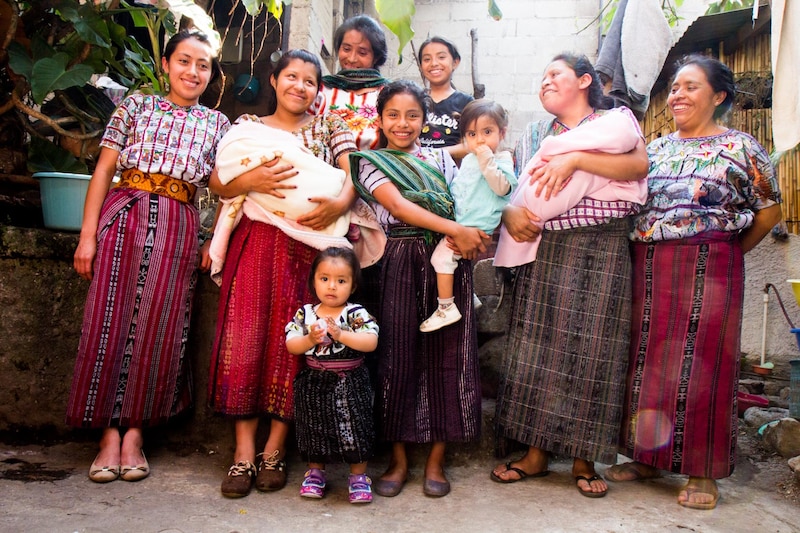
Saving Mothers’ medical team – a health literacy expert, health care providers, and a doula – help curate the mPOWHER kit with items aimed at preventing three conditions: cardiovascular disease, embolism and hemorrhage, the three leading causes of death among expecting mothers. The kit includes a Fitbit or other tracker, a blood pressure cuff, and compression socks to reduce swelling.
The Fitbit tracks heart rate and exercise, as well as helps prevent embolisms by encouraging movement. The blood pressure cuff helps patients monitor for random spikes they can report to their medical providers to help to catch conditions like preeclampsia, Perry said.
Patients get guidance on how to advocate for themselves
The kit also includes guides with information to help patients advocate for their health, like suggestions for different ways to communicate with their doctor. The tips aim to empower them to speak up in their appointments so they don’t feel overpowered or dismissed.
Teneisha “Adwoa” Olivierre recalls the difficulties of her first pregnancy in 2005, exacerbated by a lack of support from her obstetrician.
“He didn’t answer my questions, he brushed me off, gave me the wrong due date, he sent me for all my tests and things very late in the pregnancy,” she said. “The most he would do is put the stethoscope to my stomach, listen for the heartbeat, weigh me, and send me home. There was no measuring of the stomach, there was nothing.”
A midwife paid more attention: “She actually took her time and asked questions.”
Perry said the ability to self-advocate is important in a vulnerable condition like pregnancy and helps patients make the most of their doctor visits.
“They really empower the mom to take up space in those appointments and not feel like, okay the doctor is rushing, so I can’t ask these questions,” she said.
Saving Mothers also trains doulas to address health issues like preeclampsia and gestational diabetes.
The group plans to update the kits this summer with guidance on how to talk to doctors about postpartum mental health needs.
The organization distributes the kits at baby showers hosted by organizations including the New York Public Library, the New York City Housing Authority, and Healthy Start Brooklyn.
A second version, a safe birth kit, is designed for expectant mothers abroad who may need to give birth at home. It includes an umbilical clamp and razor blade to remove the cord after birth, a sterile sheet for delivering the baby, a glove, a bar of soap, illustrated directions for delivering the baby, and a hat and blanket for the baby.
How stress and access to health care can affect maternal health
Stress can play just as big a role in Black maternal mortality as any medical condition, Perry said, pointing to microaggressions and bias that affect Black women.
Rewa Thompson, a nurse educator of 20 years and a clinical associate professor at Stony Brook University’s School of Nursing, said social determinants of health – income, education and access to health care – factor in, as well.
For example, many low-income pregnant patients rely on Medicaid, which offers limited resources.
“There are more Black women who use these public hospitals,” Thompson said. “The hospitals are short staffed.” Bias and fatigue can lead staff to dismiss concerns of Black mothers. “So they become desensitized to the complaints, and then they’re like, she’s fine, and next thing you know, she has a massive blood clot in her lungs, and she’s dead.”
Thompson recommends that Black mothers have a trusted representative with them for the birth experience, to speak up for them in the event that they cannot advocate for themselves.
How federal funding cuts affect maternal health
Perry says recent cutbacks from a restructuring and reorganization of federal health agencies ordered by the new Trump administration have put maternal resources in jeopardy.
In January, data collection for the Pregnancy Risk Assessment Monitoring System was cut, and the 17 employees who worked in the CDC program were laid off on April 1.
New York state has taken steps to expand affordable health care for pregnant patients and offer free doula services under Medicaid.
Olivierre, who now works as a doula, said she was much more prepared for her second pregnancy, in 2023. She used a kit provided by Saving Mothers and took care in choosing her providers.
A week after giving birth, Olivierre noticed a spike in her blood pressure. After an emergency room checkup, it was confirmed that she had developed preeclampsia.
“If I didn’t have the blood pressure cuff, I wouldn’t have known that I needed to go to the emergency room,” she said.
This story was produced in partnership with the Health & Science Reporting Program at the Craig Newmark Graduate School of Journalism at CUNY.

